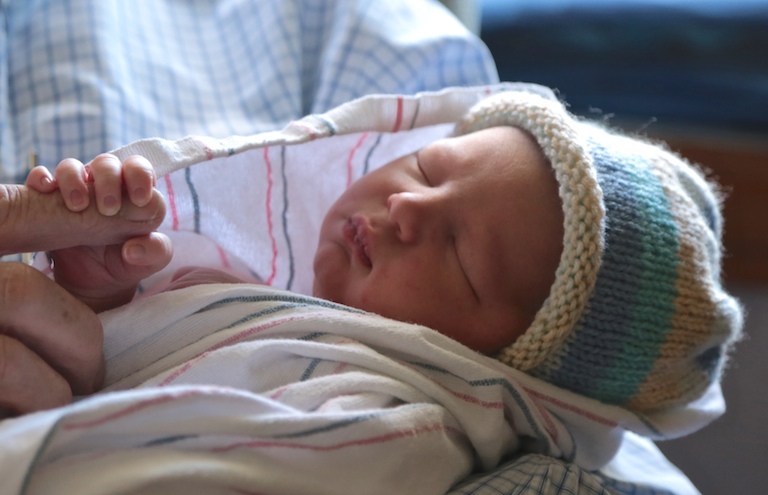Early-term babies could face lifelong fitness risks

Posted October 05, 2017
- Babies born 2-3 weeks early have 57% greater risk of developing poor fitness issues
- Results have policy implications given current trend towards elective early births, researchers say
Babies born 2-3 weeks early are more likely to have poor physical fitness as teenagers and young adults, according to new findings published in the (opens in a new window)Journal of the American Heart Association.
The research involved 791 participants from the Northern Ireland Young Hearts Study, a longitudinal study of the determinants of children’s health involving 1,000 children that has been running since 1990.
The new findings show that babies delivered 2-3 weeks early had a 57 percent higher risk of poor cardiorespiratory fitness throughout their life compared to babies born at full or late term.
Cardiorespiratory fitness reflects the ability of the circulatory, respiratory and muscular systems to supply oxygen to muscles during exercise. It is a major indicator of metabolic and cardiovascular health.
The authors of the study believe the results have important policy implications due to current trends towards elective early births.
“The results of this study show that earlier births – even within the full-term window – may interrupt development and lead to permanent changes in tissues and organs that result in long-term fitness and health impairment,” said study co-author Professor Colin Boreham, UCD School of Public Health, Physiotherapy and Sports Science, University College Dublin.
“Of course many early term deliveries are for medically sound reasons, but there has been an increase in rates of earlier deliveries of babies without medical indication, particularly in the private sector, and this is worrying in light of their potential lifelong impact on offspring health.”
Photo credit: smilla4/Flickr/CC
The international team of scientists included researchers from the (opens in a new window)University of Queensland and University College Dublin. It was led by Dr Isabel Ferreira from the School of Public Health at the University of Queensland.
“Recent trends towards electively delivering babies earlier are worrisome in view of the health risks this may bring to the child,” said Dr Ferreira.
“It is becoming increasingly evident that babies born earlier – even by only a few weeks – may face more adverse health outcomes as they get older. These could include neurological, cognitive and respiratory issues in adolescence and early adulthood.”
The study determined the cardiorespiratory fitness of the study’s participants at 12, 15 and 22 years of age. This was done by measuring their maximal oxygen uptake level after undergoing standardised physical tests.
Differences in diet, physical activity and smoking habits of the participants did not affect the outcomes of the study.
By: Jonny Baxter, digital journalist, UCD University Relations
UCD academics on The Conversation
- Opinion: The leap year is February 29, not December 32 due to a Roman calendar quirk – and fastidious medieval monks
- Opinion: Nigeria’s ban on alcohol sold in small sachets will help tackle underage drinking
- Opinion: Nostalgia in politics - Pan-European study sheds light on how (and why) parties appeal to the past in their election campaigns






